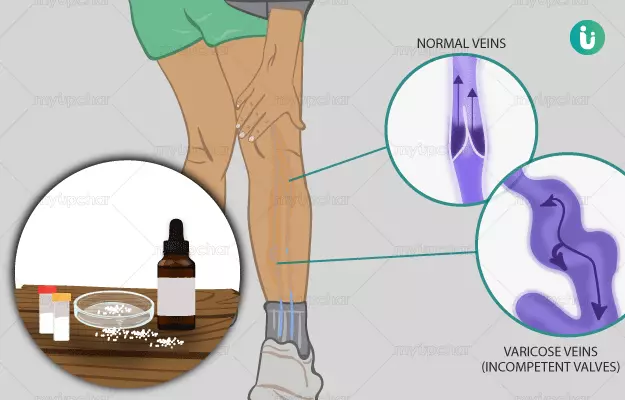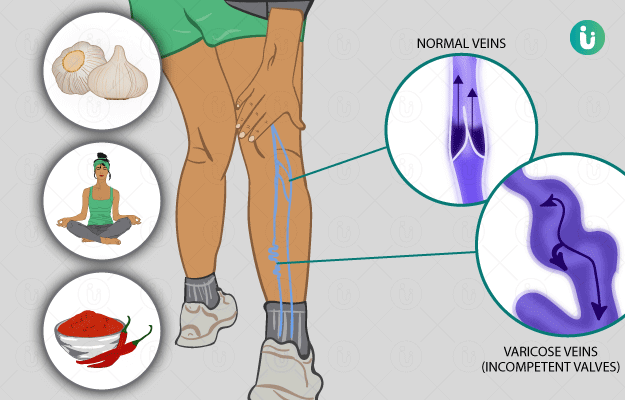Varicose veins are twisted, bulging and widened veins that show up in bluish colour on the skin. The condition may not always produce troubling symptoms and it usually affects legs. This is because the veins in legs contain one-way valves to maintain blood flow. Valves are tissues that open on only one side. In leg veins, valves ensure that blood goes upwards, towards the heart, and opposite the force of gravity. However, when these valves fail, the blood flows back into the veins, causing pooling of blood and widening of the veins due to increased pressure. Continued pressure in the veins causes the development of varicose veins and patches of discoloured areas on the legs.
There are two types of venous system in the legs, both of which can become varicose:
- Superficial veins: These are present right under the skin.
- Deep veins: These veins are present deeper in the skin. Deep veins are squeezed by the leg muscles during walking or any physical activity so that the blood is pumped back to the heart.
Varicose veins are known to have a hereditary predominance and are more common among women. Common risk factors for varicose veins include standing for long periods of time, ageing, obesity and leg injuries. Hormonal factors such as pregnancy, menopause, puberty and the use of birth control pills also affect the development of varicose veins. Varicose veins are common in the first three months of pregnancy. Due to an increase in hormonal levels during pregnancy, the blood volume increases which causes the veins to enlarge. Also, the growing uterus puts pressure on the veins. Varicose veins usually improve within 3 months of delivery. However, with repeated pregnancies, these varicose veins may continue to persist.
Symptoms of varicose veins include:
- Visible, swollen veins
- Pain and discomfort with heaviness in limbs
- Pain worse on standing and at the end of the day
- Swelling in the ankles
- Itching and skin discolouration around the varicose veins
Common complications of varicose veins include
- Phlebitis or inflammation of veins leading to pain
- Bleeding varicose veins
- Deep vein thrombosis
- Varicose ulcers
Conventionally, varicose veins are treated through self-care and methods to reduce pressure in veins like compression stockings. Ablation therapy is done in some cases to destroy the affected veins.
Homeopathy provides excellent results in treating mild to moderate cases of varicose veins. These medicines act in a gentle and safe manner to reduce swelling, pain and varicosities. Homeopathy also helps in treating varicose ulcers, even in those who require surgical intervention.
Some of the homeopathic medicines used in the treatment of varicose veins include aesculus, arnica, arsenicum album, belladonna, calcarea carb, carbo veg, causticum, crotalus, hydrofluoric acid, hamamelis, lachesis, lycopodium, pulsatilla, sulphur and vipera.




























